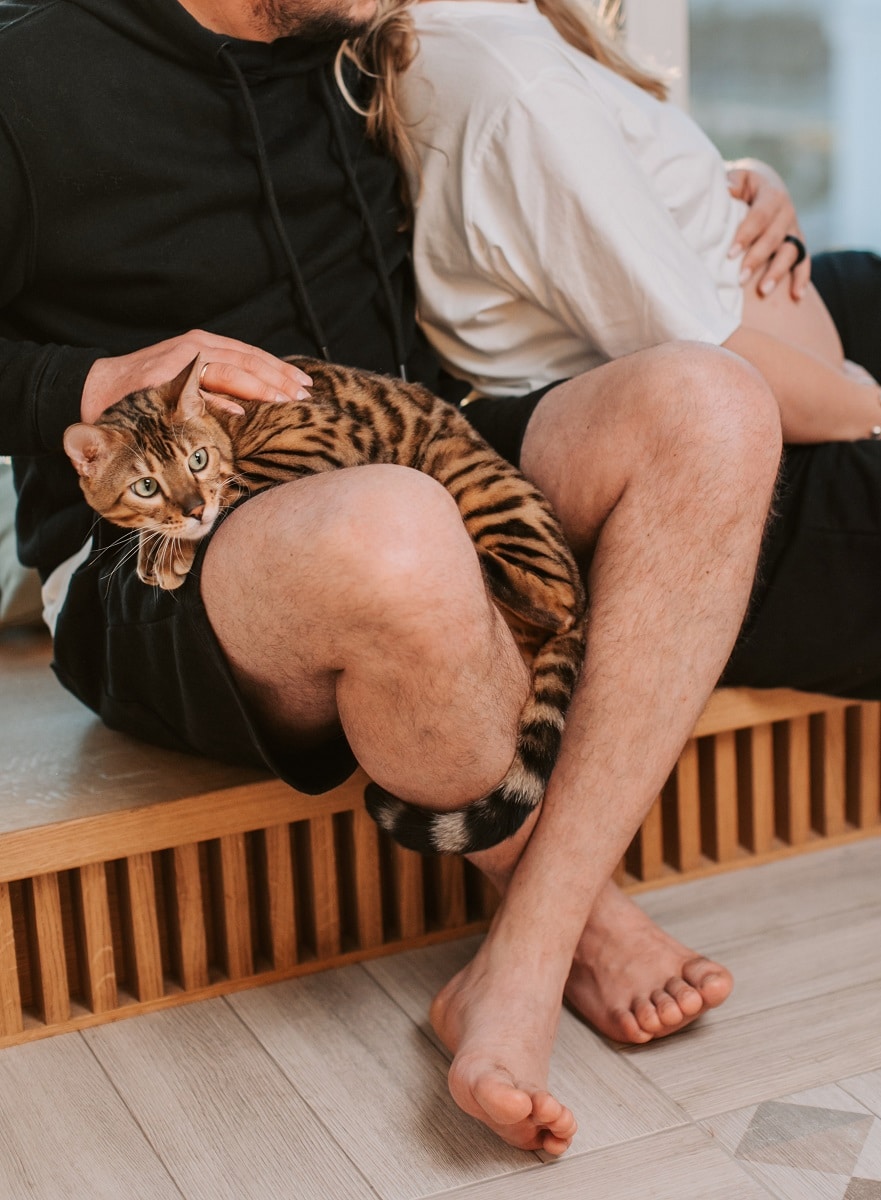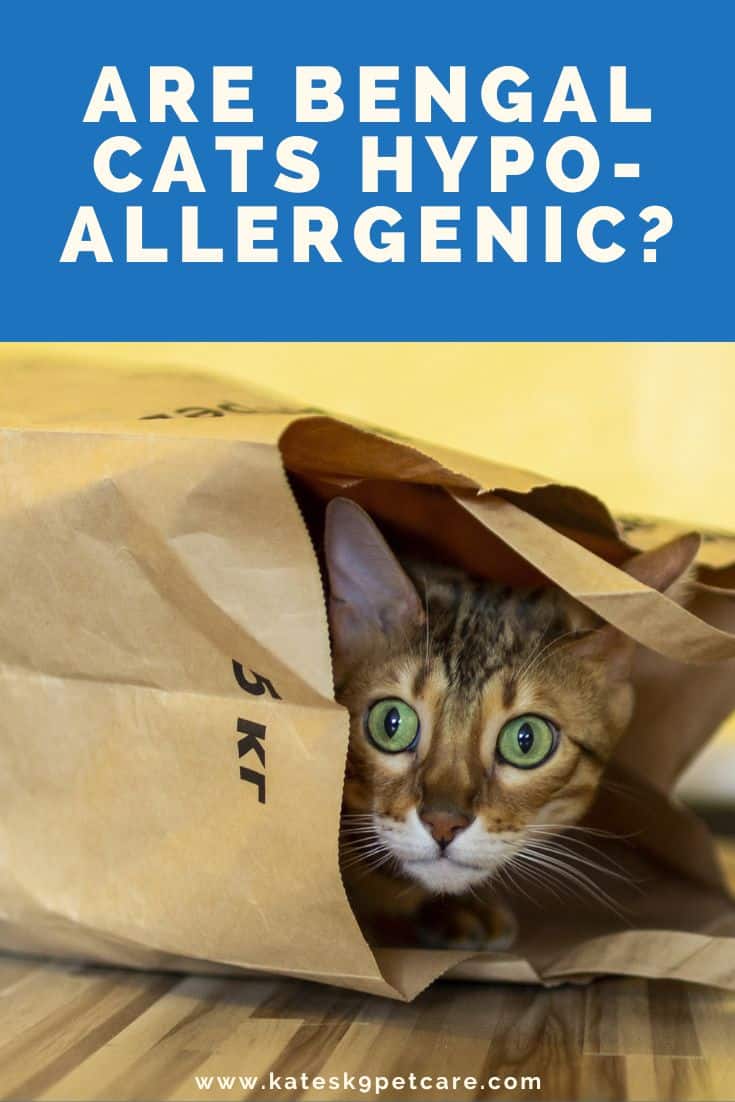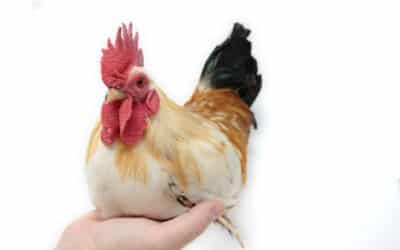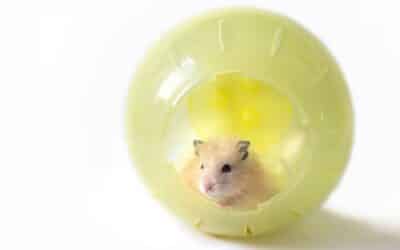If you’re a cat lover who simultaneously suffers from an allergy to cats, you may have done some reading and come across the Bengal cat breed. These felines are commonly touted as hypoallergenic, which would mean they don’t trigger allergies like other cats do. But is that true? Are Bengal cats hypoallergenic, and can you keep one without constant sniffles even if you’re allergic to cats?
Let’s dive into everything you need to know about cat allergies, Bengal cats and whether they may be a good solution for you.
What Is A Cat Allergy?
In the United States, according to research, around 12% of people is sensitized to cats. What this basically means is that bits of cat, like saliva or even pee, can trigger some degree of allergic reaction in them. A cat allergy can be diagnosed with the help of a standard and non-invasive skin prick test.
In some folks the condition is mild, causing annoying symptoms like a clogged nose and itchy eyes if they come into contact with a cat. For others, the allergy is much more severe, resulting in intense symptoms like asthma and shortness of breath even if they’re never actually in the same room as a cat. A family member having petted a cat earlier in the day can be enough to trigger a reaction for some.
The most important cat allergens are two proteins in our furry friends’ saliva and skin oil glands, called Fel d1 and Fel d4. The former is actually airborne and its particles are very small, giving it the capacity to affect people’s lungs.
People whose allergies aren’t overly severe can sometimes still have cats in their home. Scientists note that there are some things you can do to reduce the amount of allergens reaching you:
- Washing the cat regularly (not always an easy job with our water-fearing felines! A damp cloth may be more easily accepted than a full-on bath, and is also better for their skin.)
- Keeping the cat out of your bedroom
- Using HEPA filters for air purification
- Vacuuming often
- Using covers for mattresses and (sofa) pillows
- Removing pillows, curtains and rugs entirely
- Cleaning with bleach
It’s also often recommended to feed the cat in question as healthy a diet as possible. No standard supermarket kibble packed with filler ingredients, please! After all, a healthy cat will have healthy skin and fur, meaning it won’t shed and flake as much and therefore spread less allergens. Some cat lovers actually favor a completely raw diet.
Immunotherapies have been developed for cat allergies. Some of them actually seem quite promising, and have been shown to result in clinical improvements in trials. However, it’s not something that’s available on a large scale yet, unfortunately.

What Is A Bengal Cat?
As we discussed in the article about Bengal vs Savannah cats, the Bengal cat breed is the result of crossing domestic cats (particularly the Egyptian Mau) with a wild cat species, the Asian leopard cat.
The breed has been around since the 1970s and has only grown in popularity since then, despite the fact that it’s not allowed in all states. This especially applies to early-generation crosses with a high percentage of Asian leopard cat genetics, although most of the Bengals sold are of later generations.
Bengals are appreciated for their looks and personality. They’ve got short, beautifully patterned coats like their leopard cat ancestors and sport a lean body shape. Their eyes are often a strikingly bright green or blue. Bengals are generally active cats and can be quite a handful (vocal, too smart for their own good), so they’re not always the best choice for those who don’t have experience with cats as pets. They can also be wildly expensive.
Are Bengal Cats Hypoallergenic?
The short answer? No. The definition of “hypoallergenic” is something that is relatively unlikely to cause an allergic reaction. That’s not something that can really be applied to any cat breed, as far as we’re aware at this point in time.
“There is no scientific evidence to support labelling certain breeds of cats or dogs as hypoallergenic”, says a large 2018 review that looks at hundreds of scientific studies on the topic of cat and dog allergies. No breeds have been identified so far that don’t produce allergens, so calling them hypoallergenic would be a bit misleading.
The problem is that telling people that some breeds are hypoallergenic can result in more animals being abandoned once their owners find out they still get the sniffles. After all, as mentioned, the allergy-causing proteins are in their saliva. That’s something every cat has. In fact, it’s something that every cat uses to clean its fur coat, thereby spreading their Fel d1, Fel d4 and other allergens all over the place.
So what’s the deal with Bengal cats, along with some other breeds like the Cornish rex, being labeled as hypoallergenic if they’re not? Well, it’s mostly a marketing thing. It’s pretty helpful for cat breeders to be able to claim their cats don’t trigger allergies, especially if it also allows them to sell them for more $$$ to hopeful cat lovers!
But there’s more to the story. Anecdotal evidence seems to suggest that although Bengals aren’t hypoallergenic, they do cause less of a reaction in a lot of allergic people. We couldn’t find any scientific studies confirming this, but then again, we couldn’t really find any studies about the topic at all.
Possible explanations mostly center around the cats’ short, single-layer coats. These mean they don’t have to groom as much (= less saliva applied), and don’t shed as much saliva-covered hairs either.

Conclusion
So, are Bengal cats hypoallergenic? No, the unfortunate truth is that they’re not. However, they may spread less allergens than many other cats, which could make them an alright choice for people with milder allergies. This especially applies if you also take other measures, like using HEPA filters in your home, feeding a high-quality diet and refraining from very close contact with your Bengal cat (we know it’s hard, they’re very snuggleable when they finally wear themselves out playing).
Just don’t assume this breed is some kind of magic solution! Impulse-buying any animal can end in heartache. If you have friends with a Bengal, it may be helpful to visit their house to see how your body responds. You could also consider contacting your GP to inquire about immunotherapy to possibly help lessen your allergic response to cats in general
Sources







